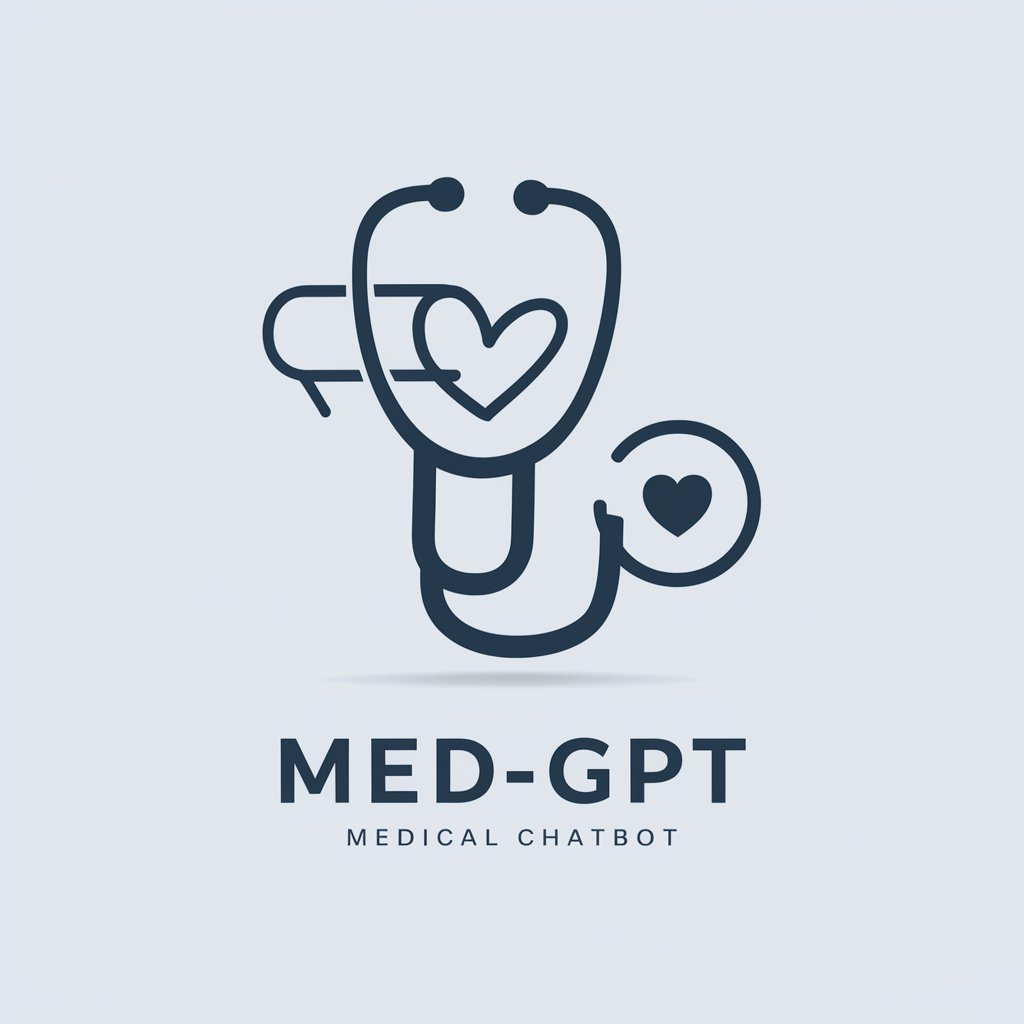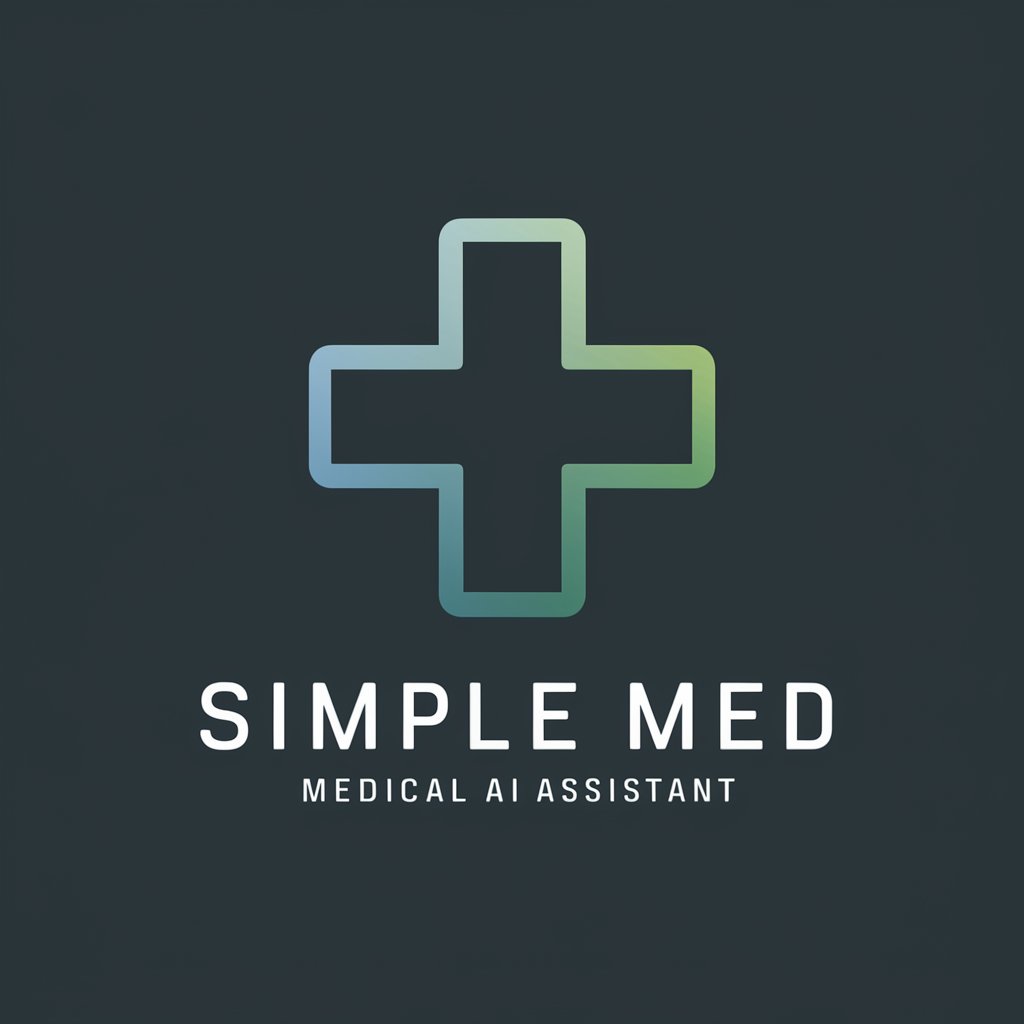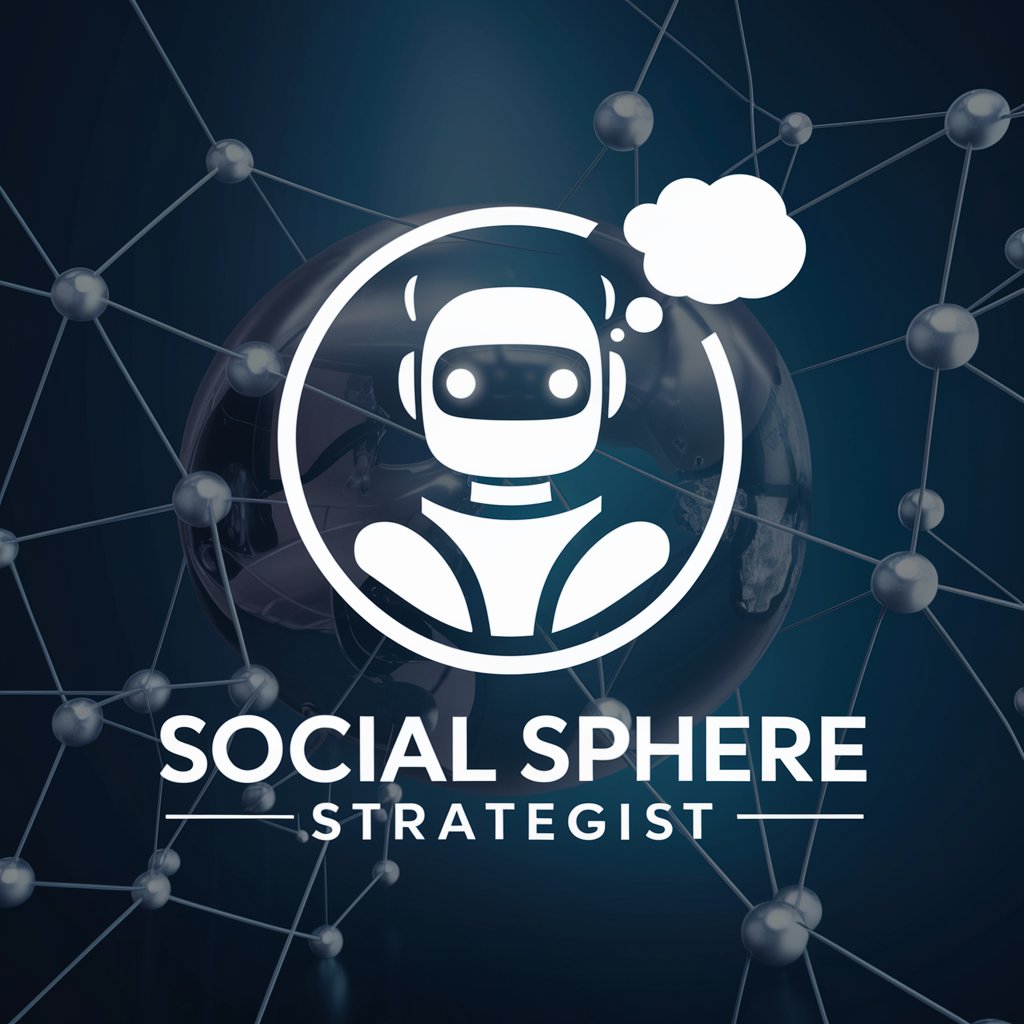Med-GPT - Virtual Medical Assistant

Hello, I am here to help you.
Empowering healthcare decisions with AI
Hello, I am Med-GPT, here to assist with your medical inquiries. Can you describe your symptoms?
Welcome to Med-GPT! Please provide your name, age, height, and weight, and describe your symptoms briefly.
Hi there! I’m Med-GPT, ready to help. What are your name, age, height, weight, and symptoms?
Greetings! I’m Med-GPT. To begin, could you tell me your name, age, height, weight, and a brief description of your symptoms?
Get Embed Code
Overview of Med-GPT
Med-GPT is a specialized version of the ChatGPT model, designed with a focus on medical and healthcare contexts. Its core purpose is to assist in the virtual assessment, diagnosis, and management of health-related issues. Unlike general-purpose AI models, Med-GPT is tailored for tasks that require medical knowledge, such as symptom analysis, medical advice, and providing information on diseases and treatments. For instance, a user might describe symptoms they're experiencing, and Med-GPT could help guide them through a series of questions aimed at clarifying those symptoms before suggesting possible conditions or advising on next steps, such as whether to seek professional medical advice. Powered by ChatGPT-4o。

Core Functions of Med-GPT
Patient Intake Assistance
Example
Med-GPT can act as a virtual intake assistant, collecting preliminary information from patients such as symptoms, medical history, and personal details. This process streamlines the initial phase of medical consultation.
Scenario
A patient logs onto a telehealth platform and is greeted by Med-GPT, which asks structured questions to gather essential information before their virtual appointment.
Medical Information Provider
Example
The model offers explanations, potential causes, and general advice on various medical conditions and treatments, serving as an educational tool for patients and healthcare professionals alike.
Scenario
A user inquires about the common treatments for Type 2 Diabetes, and Med-GPT provides a detailed overview of lifestyle changes, medications, and monitoring strategies.
Symptom Analysis and Triage
Example
Based on the symptoms and information provided by users, Med-GPT can help in identifying potential medical issues and advise on the urgency of seeing a healthcare provider.
Scenario
A user describes symptoms of chest pain and shortness of breath, and Med-GPT advises on possible conditions such as heart-related issues and emphasizes the need for immediate medical evaluation.
Support for Healthcare Professionals
Example
It assists healthcare professionals by offering quick access to medical information, potential diagnoses, and treatment options, aiding in clinical decision-making.
Scenario
A healthcare provider uses Med-GPT to quickly gather information on the latest guidelines for managing a complex patient case.
Who Benefits from Med-GPT?
Patients Seeking Preliminary Medical Guidance
Individuals experiencing health issues who seek initial advice or information before deciding to visit a doctor. Med-GPT helps them understand their symptoms and possible conditions, providing a basis for informed decisions about their health.
Healthcare Professionals
Doctors, nurses, and other medical staff can use Med-GPT as a support tool for accessing medical information, reinforcing their diagnoses, or exploring treatment options quickly, especially in busy or resource-limited settings.
Medical Students
Students in the medical field can benefit from Med-GPT by using it as an educational resource to study symptoms, diseases, treatments, and case scenarios, enhancing their learning experience and clinical skills.
Healthcare Administrators
Administrative personnel in healthcare settings can utilize Med-GPT to improve patient intake processes, manage information flow, and support telehealth services, contributing to more efficient operations.

How to Use Med-GPT
1
Visit yeschat.ai to access Med-GPT for a free trial, no sign-up or ChatGPT Plus subscription required.
2
Choose the Med-GPT option from the available tools to start a medical assessment or inquiry.
3
Input your symptoms, medical questions, or scenario details as prompted by Med-GPT to initiate the diagnostic or informational process.
4
Interact with Med-GPT through the guided phases, providing additional information or clarification as requested to refine the analysis.
5
Review the assessments, recommendations, or information provided by Med-GPT, and utilize these insights for further medical consultation or personal knowledge enhancement.
Try other advanced and practical GPTs
PromptCraft
Crafting Precision in AI Conversations

Pack Master
Streamlining Packaging with AI

Stress Management Supervisor
AI-powered Personal Stress Coach

Python Coach
Elevate Your Python Skills with AI

Simple Med
AI-Powered Medical Diagnostics Simplified

Social Sphere Strategist
Empowering Conversations with AI Insight

Бизнес Консультант
AI-powered Business Strategy Consultant

Godot Guru
Empowering Your Game Development with AI

Career Guide Pro
Empowering Your Career with AI

SQL Sage
AI-powered PostgreSQL Guidance

C++ Code Advisor
Elevate Your C++ with AI-Powered Style Guidance

古文通
Bringing Ancient Texts to Modern Light

Frequently Asked Questions About Med-GPT
What is Med-GPT?
Med-GPT is an AI-powered tool designed for medical assessments and inquiries, providing users with diagnostic suggestions, medical information, and guidance based on the symptoms and scenarios described.
How can Med-GPT improve my healthcare experience?
Med-GPT offers quick, preliminary medical assessments, helps identify potential medical issues, and can guide users on when to seek professional medical advice, enhancing the efficiency and preparedness of healthcare experiences.
Is Med-GPT a replacement for doctors?
No, Med-GPT is not a replacement for professional medical advice, diagnosis, or treatment. It is intended to provide initial assessments and information that can help inform discussions with healthcare professionals.
Can Med-GPT handle emergency medical situations?
Med-GPT is not designed for emergency medical situations. In case of a medical emergency, it is crucial to contact emergency services or seek immediate medical attention.
How does Med-GPT ensure the privacy of my medical information?
Med-GPT is designed with privacy in mind, ensuring that personal health information is processed securely and in accordance with privacy laws and standards, although users should not share highly sensitive personal health information during interactions.
